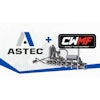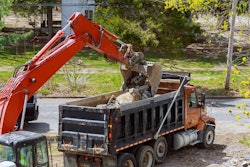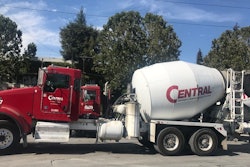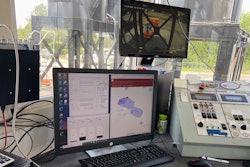
As material delivery and logistics remain essential, safety continues to be the number one priority throughout the heavy civil supply chain - particularly when it comes to the in-person handling of paper tickets for construction material.
Many material producers are taking steps to transition their scalehouse operations to E-Ticketing. Due to the related safety concerns with COVID-19, State DOTs are also introducing specific E-Ticketing guidelines with a greater sense of urgency. In turn, these regulations are providing a clear path for Contractors to implement an electronic ticketing platform.
Digital is Best
Going digital has obvious safety benefits by reducing in-person interaction and transfer of paper tickets, but it also presents a huge opportunity to evaluate and improve upon overall productivity of day-to-day material delivery. Is there concrete evidence that an E-Ticketing system offers long term value beyond improved safety?
TruckIt thinks so.
AirTicket technology is an add-on feature of TruckIT’s E-Ticketing solution. When installed at the scalehouse, the platform sends securely stored digital ticket data to all personnel involved in the material delivery process.
During the COVID-19 pandemic, TruckIT’s Data Science Team thoroughly analyzed AirTicket data in Florida over a 66 day period from February 3 to April 19. The data set covers 1,043 unique trucks on 440 projects, within 18 quarries across the sunshine state.
Here are the preliminary results of the findings:
This First Graph illustrates the average length of a workday for a dump truck driver from when they are first weighed on a scale to when they drop-off their last load of the day. It clearly shows an increase in the length of the average day between the two periods.
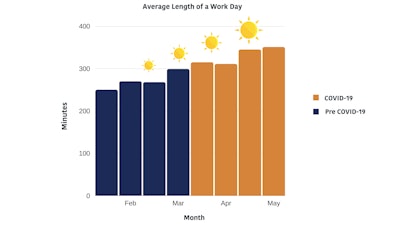 This First Graph illustrates the average length of a workday for a dump truck driver from when they are first weighed on a scale to when they drop-off their last load of the day. It clearly shows an increase in the length of the average day between the two periods.
This First Graph illustrates the average length of a workday for a dump truck driver from when they are first weighed on a scale to when they drop-off their last load of the day. It clearly shows an increase in the length of the average day between the two periods.
Many in the industry wouldn’t be surprised by a graph like this as construction usually picks up as Winter ends and Spring brings warmer and longer days. Spring started on March 19 - three days after many states closed all but essential industries. So here’s business as usual 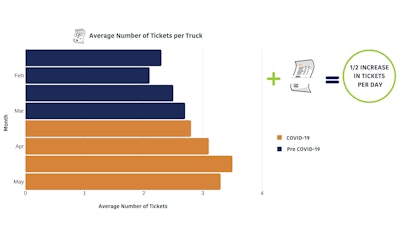
Fortunately in Florida, there was also no reduction in workload during this time. With longer days and the disappearance of rush hour traffic, dump truck drivers were actually able to deliver more loads.
Graph Number Two compares the number of tickets per truck each day averaged over the week. AirTicket data reflects an increase of half a ticket per day from the pre-COVID-19 period to the present. This resulted in greater yield for contractors and more money for carriers and dump truck drivers.
The Last Graph illustrates the average turn-time for each ticket after AirTicket technology was installed at the scalehouse. Traditionally, the ticket collection process requires drivers to exit their vehicles and interact with the scalehouse clerk to receive their load tickets. These additional steps often create bottlenecks at the scalehouse, leading to increased wait times and delayed projects.
After implementing an E-Ticketing system, the data showed that thus improved efficiency allowed the average turn-time for trucks loading during COVID-19 to be 9 minutes faster.
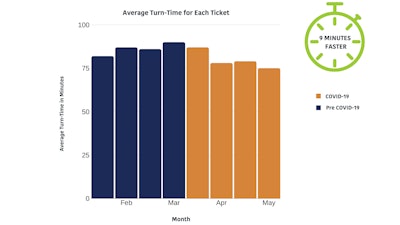
This may seem minimal, but with a full day's work, it adds up. With E-Ticketing, the driver never leaves the safety of their cab and utilizing an electronic ticketing system is not only safer when driver heath is at stake, it also allows drivers to move more material at a faster rate.

